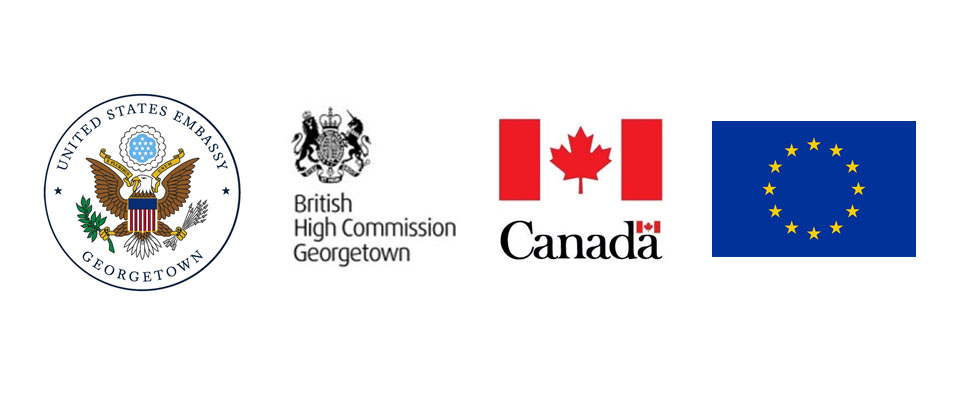-Heads of Western missions say in joint statement
Given the environmental crises facing Guyana, journalists must have access to more data and science to accurately report to the public, heads of Western missions here said in a joint statement yesterday to mark World Press Freedom Day today.
“With a low-lying coastline and rising sea levels, Guyana is continuously affected by environmental crises like flooding, and more recently, prolonged dry spells. Under such conditions, access to information is crucial to help the Guyanese population understand local environmental impacts, planned interventions and costs, in order to make informed decisions and be a part of the global conversation. The reliability of the information available to the public requires journalists to be given more access to data and science to analyse in order to accurately inform the public”, the statement said.
It was subscribed to by the Heads of Missions of the Embassy of the United States of America, Nicole Theriot; the British High Commission, Jane Miller; the Canadian High Commission, Mark Berman, and the Delegation of the European Union, René van Nes.
This year’s World Press Freedom Day is being observed under the theme, “The importance of journalism and freedom of expression in the context of the current global environmental crisis”.
New research, data and findings should be made readily available to the media, the statement said. “Journalists should be allowed access to speak to local experts and researchers involved in climate work. Additionally, they should also have the opportunity to see environmental work in action, facilitating ongoing learning and staying informed about new interventions and climate activities”, the statement said.
It added that this right to access comes with the responsibility for due diligence in reporting, especially at a time when misinformation and disinformation is rampant.
“Journalists are expected to be neutral and fair when representing the facts. A misrepresentation of facts and figures, whether deliberate or accidental, can have damaging effects, manipulating public perception (locally and internationally) of the environmental situation. This can in turn affect public perception of a Government’s response and use of funds during an environmental crisis”, the joint statement said.
“We therefore encourage Government, Opposition and Stakeholders to be thoughtful and deliberate in their action and to practice transparency and accountability. Engagement with the media and the availability of accurate environmental and other information should be a norm and actively in practice”, the heads of mission said.
They also encouraged journalists to “maintain the integrity in their work and to continue to be curious and enquire”.
“We encourage the public to show respect for the work of journalists, enabling them to present information without the threat of intimidation or attack (physically or online), particularly women, and LGBT persons”, the statement added.
It commended the efforts of the Government of Guyana towards providing training opportunities for members of the media and encouraged more training and open discourse, including dialogue with the Guyana Press Association.
“It is important to acknowledge that in all aspects of society, the work of journalists is essential to human rights and a cornerstone to democratic processes. Media freedom and the freedom of expression benefits us all. When the media is reliable, fair and free to operate, and the government is transparent, our countries are more successful”, the statement posited.
Adverting to climate change and related environmental issues that have been at the forefront of international dialogue, the statement said that journalists find themselves in an important position, where their pen and their words can influence citizens in the high stakes global environmental conversation.
“Freedom of expression is essential, allowing journalists the ability to deliver the facts about climate change and related issues freely and fairly, without influence or intimidation as climate research, climate talks and climate action progress”, the statement noted.






